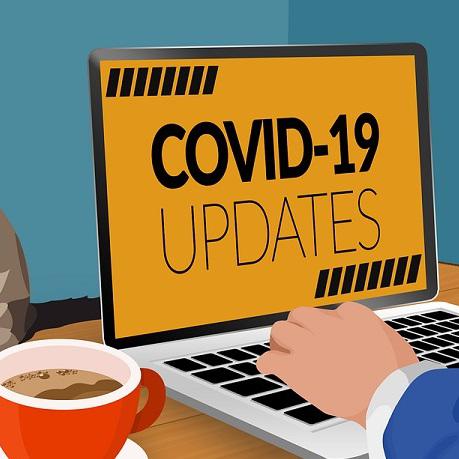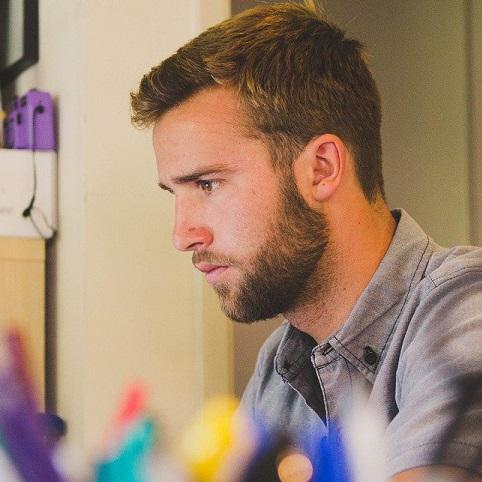How to stay calm during a crisis
by Lorraine Grula

The world is in crisis due to the novel corona virus pandemic. Everywhere you look, you see evidence that the world has entered uncharted territory. Businesses closed, people quarantined, grocery shelves bare.
If this were a movie, I think it’d be time for the worst case scenario scene of people screaming out of control and crazy with panic.
That, of course, would make a bad situation worse. Panic never helps. We all know that, but fear is a natural response to what’s going on, and if someone says they’re not at least a bit scared right now, they must not be paying attention.
So, if we’re all admittedly scared, how do we keep from going over the edge into a full-blown panic? Here are a few tips to stay calm under pressure, ban those negative thoughts and take care of your mental health.
Attitude is Everything
Fear is a hard emotion to deal with. Fear hurts. Fear is uncomfortable, and fear is, well...scary!
Fear is so awful that people often deal with it by ignoring danger and pretending it doesn’t exist or at least isn’t that bad. Denial ain’t just a river in Egypt as they say!
We’re all probably aware that denial is a recipe for disaster, even if it feels good in the moment.
Is there a middle ground? How do you take care of your negative emotions and remain calm?
Is there a way to be aware yet not afraid? Yes, but many people never master the trick, which is why denial is so prevalent.
Living in Fear
I’ve heard many people proclaim that they aren’t going to “live in fear,” so they don’t want to follow isolation and quarantine suggestions. That’s denial.
If you study pandemics of the past and epidemiology, it’s clear that COVID-19 has the characteristics scientists have identified as most likely to cause widespread problems, so the threat is real. The best way to manage stressful situations is to inhale deeply, get some physical activity and concentrate on the present moment. If you feel overwhelmed, do some mindfulness meditation to stop stressing and worrying about things you cannot control anyway.
Are You Doing All You Can?
Some people worry all the time. To banish the habit of worrying, it helps to remember that you have limited control. If you are truly doing everything you can to prevent a problem, then worry beyond that is wasted energy.
Reduce stress and direct your energy into the best things you can do to prevent problems. Do them. Consistently. Then breathe deep and let it go.
You can train your brain to keep aware of the situation and remind yourself that knowledge is power. Knowledge should not be what makes you fearful.
Accept that you have limited power and control in a situation like this, but you can be diligent in following safety precautions. You can be diligent with your body and mind in doing all you can realistically do.
Breathe Deep!
Calming breaths truly do help calm you down. Close your eyes and take 10 slow, deep breaths in and out. Meditate to relax and turn off your body's natural fight or flight response. Watch a funny movie. Make a list of things you are grateful for to put your mind on a more positive path.
If you find yourself worrying nonstop, you have got to learn to redirect your mind. Pandemic or no pandemic, chronic worrying takes a toll, and you can learn to stop, but it certainly is not an overnight process. It takes practice to make it a habit.
Use Your Time Wisely
Is this a great time to reconnect with those you live with? Maybe a fun family project would give you all something productive to do together.
Most of us complain about never having enough time! Well, now you’ve got some extra time. Focus on the positive and use the time to your advantage.
Are there some subjects you’ve wanted to study or read about? I’ve seen many universities, museums, zoos, and other public attractions adding to their online content with virtual tours and live cams of cute animals and that sort of thing.
If you’ve wanted to take some professional SAP training, this would be an excellent time for that. Improve your skills and beef up your resume by adding some professional credentials. For example, you could look into finally tackling your goal of learning SAP.
With the internet, you have the whole world at your fingertips so you can distract yourself from worry in several ways.
Continue doing all you can to protect yourself and your family. Be diligent. Beyond that, focus on the moment, be grateful for what you have, and hug your loved ones close.
by Lorraine Grula
More Blogs by Lorraine Grula

How To Manage Staff When You Are Finally Together Again
When COVID-19 abruptly changed the world, businesses had to adapt. Rem...

Job Prospects Increase With Hands-on SAP Experience...
What's the first thing a job recruiter would ask a person looking ...

Time To Change Out of Your PJs - Getting Back to Work...
When COVID-19 abruptly changed the world, businesses had to adapt. Rem...
Related Blogs

Tips for Working From Home in the Age of Social...
What a difference a virus can make! All over the world, remote ...

Twelve Hacks For Meeting Deadlines
It happened again--you missed a deadline. Maybe you forgot about it. Maybe it...
.png)


